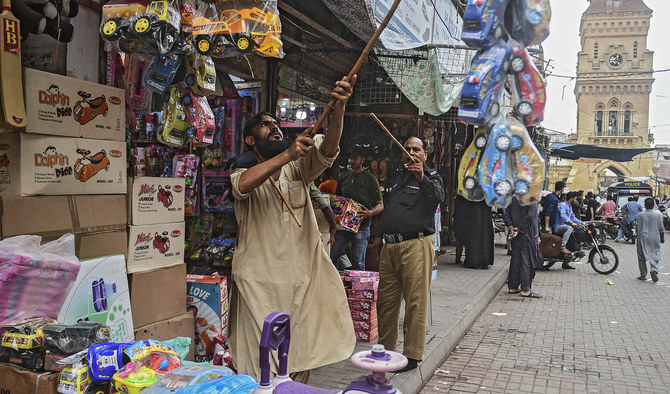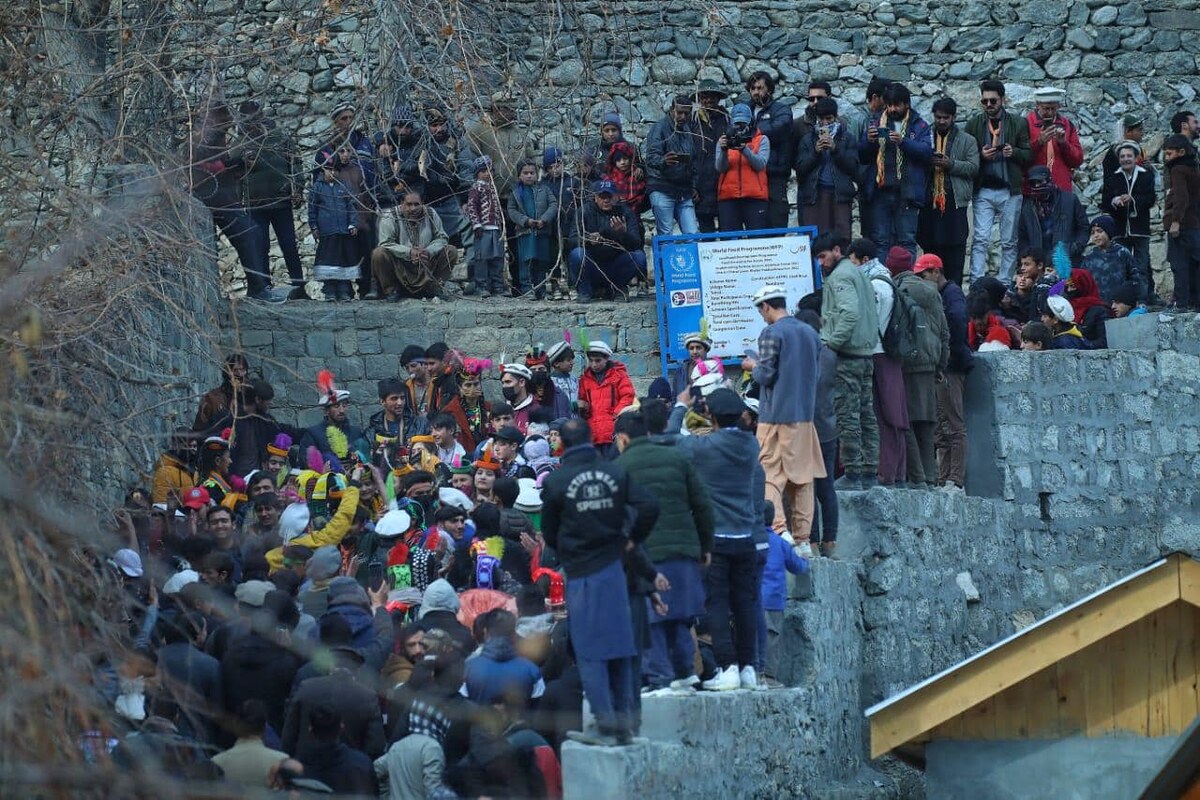KARACHI: The provincial administration of Sindh could announce a two-week lockdown in Karachi on Friday if coronavirus cases continue to increase, a senior health official said on Wednesday.
Sindh Chief Minister Murad Ali Shah said on Tuesday his province was witnessing an “abnormal” surge in COVID-19 cases, saying the situation was particularly “alarming and critical” since the positivity ratio in the city had shot past 26 percent.
The infection rate in Karachi has consistently remained high, with 8,513 coronavirus cases recorded during the last week and an average daily positivity rate of 21.73 percent.
“We are increasing the capacity of government and private hospitals, but this is obviously not a solution [to the pandemic],” Qasim Soomro, parliamentary secretary on health in Sindh, told Arab News. “We will have to enforce the lockdown to address the situation if the infection rate does not drop by Friday.”
Soomro also said the Sindh administration was trying to increase hospital capacity and had held a meeting with the management of private medical facilities.
On Wednesday, a spokesperson for the Sindh chief minister said the Sindh government had decided to add more ventilators, and oxygen beds to the health system. Currently, government hospitals in Karachi have 398 ventilators , 906 HDU (high-dependency unit) beds and 293 oxygen beds for coronavirus patients.
Around 32 ventilators, 110 HDU beds and 40 oxygen beds will also be added to coronavirus wards in hospitals in Karachi, it was announced.
“We are increasing the number of beds and ventilators in government hospitals,” Soomro said. “Yesterday, a meeting was held with the management of private hospitals in this connection. However, their unanimous demand was to impose a lockdown.”
Speaking to Arab News, Dr. Qaiser Sajjad, general secretary of the Pakistan Medical Association (PMA), emphasized strict enforcement of virus restrictions, saying negligence could lead to “a situation like India” in the country.
“The cases have reached record high level as the delta variant of the virus is fast spreading,” he said. “There is no alternative except to impose a complete lockdown if the government cannot implement the SOPs [standard operating procedures].”
“Currently, 980 critical patients of COVID-19 are admitted in various hospitals in the city, which is a record high since the outbreak of the virus last year, and this is really dangerous,” Sajjad said, while adding that 90 percent of these critical patients were unvaccinated.
“Vaccination is the only way to acquire normalcy in business and life,” the PMA general secretary added. “No one is following the prescribed health guidelines and the situation has reached a level where major hospitals of the city are refusing to treat patients [due to limited capacity].”
Pakistan’s director general health, Dr. Rana Muhammad Safdar, told Arab News the National Command and Operations Center (NCOC), which oversees the country’s pandemic response, was closely working with the Sindh administration to stop the spread of the virus.
“The NCOC is working closely with the Sindh government to support the NPI [non-pharmacological interventions] implementation, vaccination ramp up and upbuilding hospital capacity,” Safdar said while pointing out that Karachi had witnessed a consistently high transmission rate.
To bring down the rising infection rate in Karachi, the chief minister of Sindh has constituted a four-member committee to meet with transporters and members of trade associations to ensure strict implementation of the officially prescribed health guidelines in public.
“If these SOPs are not followed — and they have not been properly followed until now — the situation will force us to go for a complete lockdown,” Soomro said. “The final decision in this regard will be taken in Friday’s meeting of the provincial coronavirus task force. We will have to take strong and strict decisions to protect the lives of the people.”























